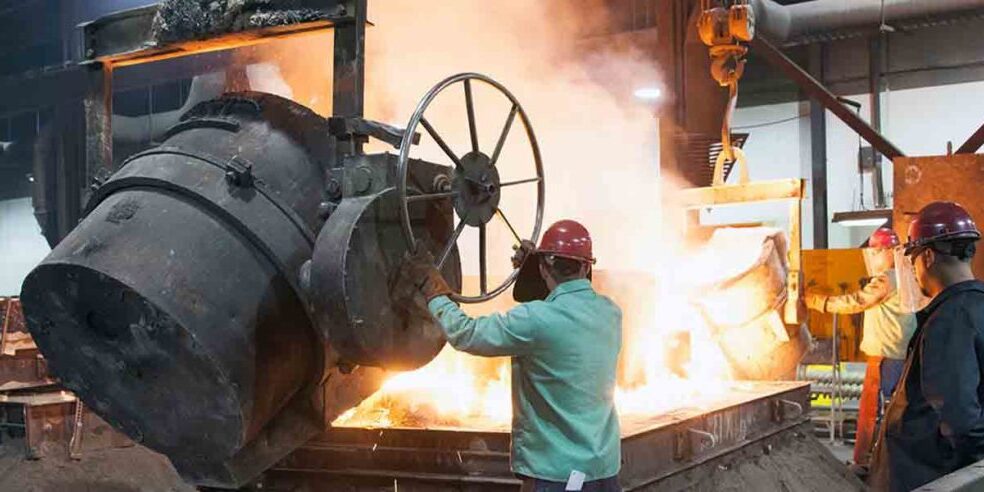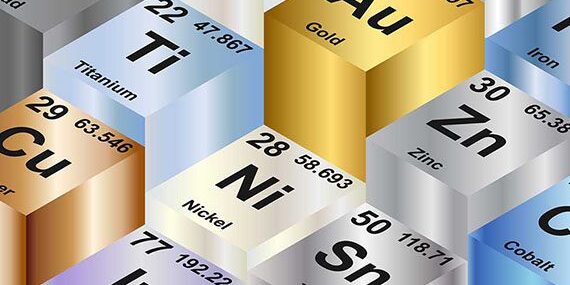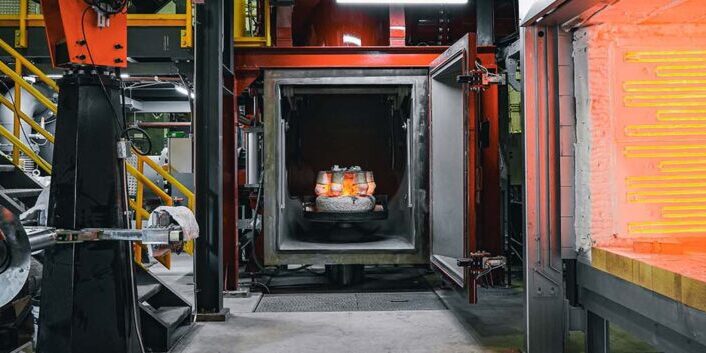Blog A Guide to Different Types of Bronze Alloys
Introduction
Bronze is a copper-based alloy that has been valued throughout history for its versatility, durability, and attractive nature. Bronze is composed primarily of copper with various combinations of tin, zinc, lead, and aluminum. This combination also produces brass. Brass contains a larger amount of zinc than tin, while bronze contains larger amounts of tin than zinc.
This blog discusses bronze alloys and their unique properties and potential applications. The word “bronze” will typically have a preceding modifier that describes the type of bronze it is, by indicating the major alloying element(s). For example, MTEK 175 / C95400 is an aluminum bronze because it contains up of 11% aluminum in addition to copper and iron.
Aluminum Bronze
As the name suggests, aluminum bronze uses aluminum as the primary alloying element. Aluminum bronze typically contains 9-14% aluminum. This group of alloys has excellent mechanical properties, including high tensile and yield strength, as well as abrasion resistance.
Due to its resistance to saltwater corrosion, aluminum bronze is widely used in marine applications, including propellers, valves, and ship components. Aluminum bronze is also popular for gears, bearings, and structural components due to its outstanding mechanical properties. The strength of aluminum bronze is comparable to a medium carbon steel, due to aluminum’s naturally high strength. A comprehensive guide to aluminum bronze can be found in this MetalTek blog.
Common Aluminum Bronzes at MetalTek include: MTEK 125 / C95200, MTEK 175 / C95400, MTEK 275 / C95900, and MTEK 375.
Nickel Aluminum Bronze
Nickel aluminum bronze is a specialized bronze alloy that incorporates nickel and aluminum, making it exceptionally resistant to corrosion in various environments, including seawater and acidic solutions. The high resistance to pitting and corrosion makes it a better alternative to the 300 series stainless steels. The Nickel Aluminum Bronze alloy is preferred in marine and aerospace applications, as well as for high-strength components in corrosive settings. They are also excellent for welding and allow for great flexibility in uses.
Common Nickel Aluminum Bronzes at MetalTek include: MTEK 230 / C95500 and MTEK 230-N / C95800.
Tin Bronze
One of the oldest bronzes is tin bronze. It is known for its excellent castability and high resistance to corrosion. With a tin content of up to 12%, this alloy is commonly employed in the manufacturing of gears, bearings, and intricate castings. This bronze is more costly due to tin’s initial cost. For a more detail look into Tin Bronze, check out this MetalTek blog.
Common Tin Bronzes at MetalTek include: MTEK 65 / C90700.
Manganese Bronze
Manganese bronzes are known for high strength and resistance to corrosive effects of seawater. Tensile strengths can reach up to 110,000 PSI depending on the composition of the specific alloy. Manganese bronzes are used for components such as bearings, gears, marine propellers, and valve stems.
Typical manganese bronzes are: MTEK Hi Tensile / C86300, MTEK Leaded Manganese / C86400, MTEK Low Tensile / C86500, and MTEK Med Tensile / C86200.
Bearing Bronze (High Lead Tin Bronze)
High-lead tin bronzes are widely used for bearings and bushings and are superior alloys in some applications when all properties and costs are considered.
Their load carrying ability directly relates to the amount of tin in the specific alloy. Lead in the alloy is dispersed and is insoluble in the copper-tin matrix. This provides good load carrying capacity and toughness due to the copper-tin content and gives lubricity, conformability, and embeddability due to the free lead that is frozen into the alloy.
The maximum operating temperature of bearing bronze is around 450°F / 230°C with a maximum load capacity of roughly 4,000 lbs. per square inch.
Typical bearing bronzes in this family are: MTEK 83-7-7-3 / C93200, MTEK 80-10-10 / C93700, MTEK 79-6-15 Hi Lead / C93900, and MTEK 943 / C94300.
How to Choose the Right Bronze Alloy for Your Application
Selecting the right bronze alloy depends on the specific requirements of your project. Consider the following factors to determine the best fit:
- Corrosion Resistance – For applications exposed to seawater or harsh environments, aluminum bronze or nickel aluminum bronze is ideal due to their superior corrosion resistance.
- Strength and Wear Resistance – If high strength and durability are required, manganese bronze is a great choice, especially for heavy-load components like gears and bearings.
- Castability and Complexity – Tin bronzes are known for their excellent castability and are well-suited for complex castings with intricate shapes.
- Cost Considerations – Some alloys, such as tin bronze, may be more expensive due to the cost of raw materials. High-lead tin bronzes offer a balance of performance and cost for bearing applications.
- Operating Temperatures – High-lead tin bronzes are designed for applications with elevated operating temperatures up to 450°F (230°C).
Other Types Of Bronzes
There are additional types of bronze alloys that this article will not discuss in detail but are worth mentioning. If you wish to learn more about any of the alloys discussed in this article, or any of the hundreds of alloys MetalTek routinely pours, feel free to download our alloy guide now.
• Copper-Nickel Bronze (Cupronickel)
• Bismuth Bronze
• Beryllium Bronze
• Silicon Bronze
• Phosphor Bronze
• Chrome Bronze
• Cadmium Bronze
• Magnesium Bronze
• Titanium Bronze
• Zirconium Bronze
• Chrome Zirconium Bronze
• Iron Bronze
Like any project at MetalTek, the correct selection of the right alloy requires an understanding of the particular use. Bronze is an excellent alloy of a variety of applications and industries. The experts at MetalTek can help sort through the countless variations of bronze to find the best material for your project. For help in selection or starting your metal project, don’t hesitate to Contact Us here at MetalTek and get connected with an expert.



